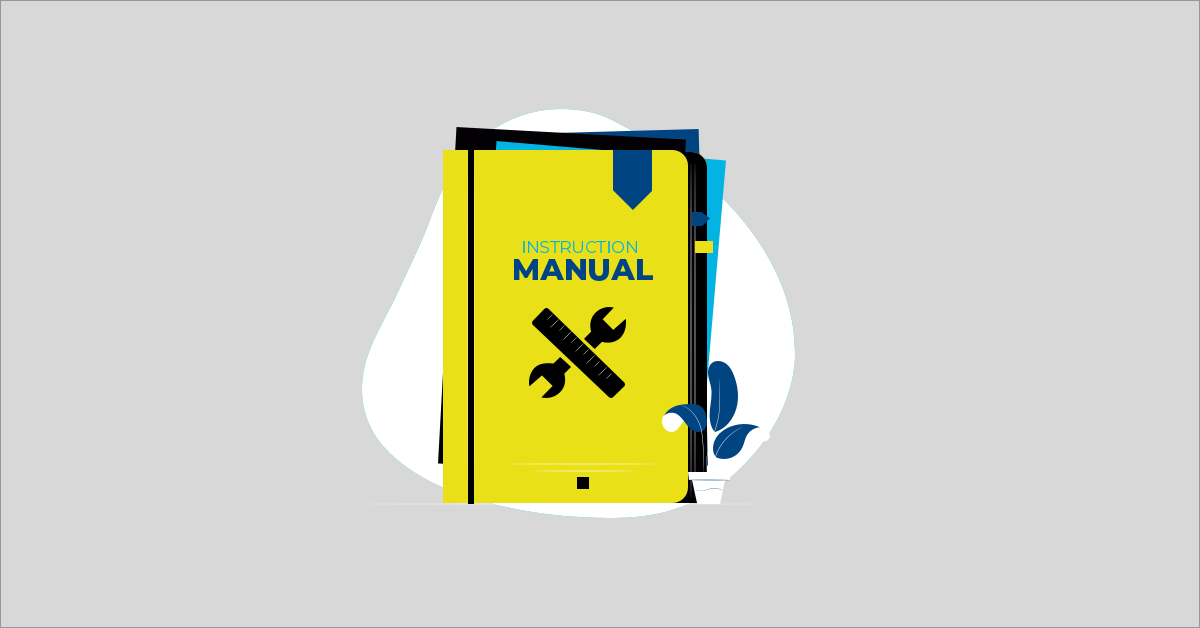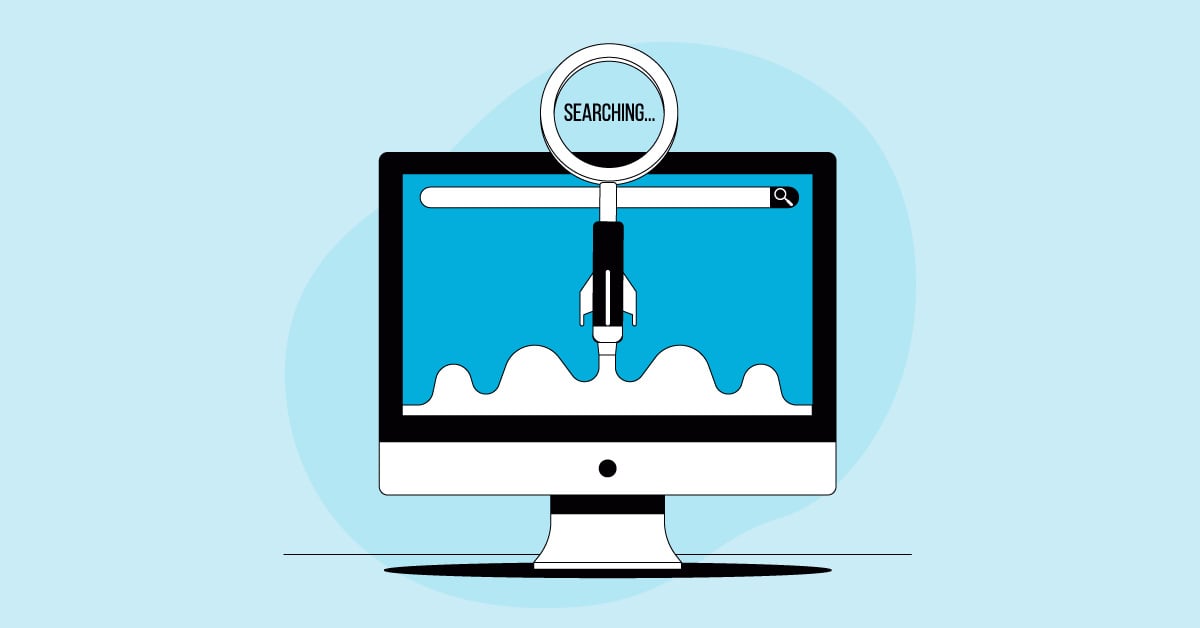Software development moves fast. One thing stays the same: users demand quality. Quality assurance (QA) is key, ensuring software doesn't just work, but works well. But QA itself is evolving, keeping pace with new trends in software testing. This article explores those key trends, giving you actionable insights to build better software, faster. We'll cover everything from automation and QAOps, to user experience and the challenges of emerging tech.
New trends are reshaping the QA landscape. From automation to AI, DevOps to blockchain, the ways teams build and test software are changing fast. Engineering leaders face a choice: embrace these innovations or risk falling behind. This article explores the key trends transforming QA and offers insight into how teams can capitalize on them to create better software.
Is Automation Testing the Future of QA?
When it comes to software testing, automation testing is like putting a jet engine in a car—it supercharges the process. Automation makes testing faster, more reliable, and scalable. Without it, manual testing would struggle to meet today's demands. Automated tools like Selenium, Appium, and TestComplete are helping teams shift from slow, repetitive manual testing to streamlined, efficient test automation.
Automation brings consistency. It allows teams to run tests across thousands of devices and browsers without the overhead of manual effort. The result? Faster releases and higher accuracy. However, diving into automation without a game plan can lead to potential issues and costly mistakes. A thoughtful approach is required to select the right tests to automate and to ensure that automation enhances rather than hinders development.
MuukTest specializes in helping teams integrate automation testing with minimal disruption. Their tailored strategies allow engineering teams to adopt automation at their own pace, all while optimizing for long-term maintenance and scalability.
Key Takeaways
- Modern QA demands a proactive approach: Integrate testing early and often with strategies like shift-left and automation to identify defects quickly and efficiently. Leverage AI and machine learning to predict potential issues and optimize testing efforts.
- User-centric testing is crucial for success: Focus on UX testing, accessibility, and multi-device compatibility to ensure a positive experience for all users. Meeting user expectations is key to building a successful product.
- Emerging technologies are reshaping QA: Stay ahead of the curve by exploring and integrating new technologies like blockchain, IoT, and cloud-based testing solutions. These advancements offer opportunities to enhance testing processes and improve software quality.
Specific Tools and Technologies for Automation Testing
The right tools are essential for effective automation testing. Here’s a look at some key players:
Postman
Postman is a go-to tool for testing APIs. It streamlines sending requests and analyzing responses, simplifying a crucial part of the automation testing toolkit. This makes it easier for teams to ensure their APIs are functioning correctly and efficiently.
Wireshark
Wireshark is invaluable for network protocol analysis. It lets testers capture and examine network traffic, which is especially important for applications in sectors like healthcare and automotive, where security and reliability are paramount. Analyzing network traffic helps testers identify potential vulnerabilities and performance bottlenecks.
Docker
Docker is changing the game for automation testing by enabling teams to create, deploy, and run applications in containers. This containerization technology supports the move towards Infrastructure as Code (IaC), simplifying the management and testing of cloud-based infrastructure. This makes it easier to create consistent and reproducible testing environments.
Terraform
Managing cloud infrastructure through code is simplified with Terraform. It automates infrastructure provisioning, a key component of effective testing in cloud environments. This automation helps ensure that testing environments are consistent and readily available.
Kubernetes
Kubernetes is a cornerstone of modern software development and testing. It automates the deployment, scaling, and management of containerized applications. Its integration with CI/CD pipelines makes testing processes more efficient, allowing teams to test their applications at scale and integrate testing seamlessly into their development workflows.
AI-Powered Codeless Automation Tools
AI-powered codeless automation tools are transforming the testing landscape. These tools empower teams to automate testing without needing extensive coding knowledge, accelerating results and creating a more efficient workflow. This opens up automation testing to a wider range of team members and allows for faster test creation and execution. While MuukTest leverages cutting-edge AI in our automation strategies, we also recognize the value of these tools in empowering teams to handle some testing tasks independently.
DevOps and QA: Streamlining Software Testing
DevOps has transformed software development by breaking down silos between teams. Development, operations, and QA now work together in a continuous improvement cycle. In the past, QA might have been tacked on at the end of the development process. Today, it plays an integral role throughout the entire pipeline.
Continuous integration and delivery (CI/CD) has become the standard, ensuring that you test your code at every stage of development. Tools like Jenkins and GitLab CI/CD make it easy to automate testing and integrate QA into the heart of DevOps processes. This means fewer bottlenecks and faster delivery cycles.
But it's not just about tools — it's also about culture. QA must be an active part of every discussion, whether a code review or a production deployment.
QAOps: Integrating QA and DevOps
QAOps takes the collaborative spirit of DevOps and applies it specifically to Quality Assurance. It’s about weaving QA practices seamlessly into the DevOps pipeline. This means shifting left, integrating QA from the very beginning of the software development lifecycle (SDLC), rather than treating it as an afterthought. Teams create tighter feedback loops, catching and addressing bugs earlier. This improves the quality of releases and speeds up delivery times. Think of it as preventative medicine for your software—finding and fixing issues early is always less painful than dealing with major problems down the line. This approach is becoming increasingly vital in today’s fast-paced software development landscape, as highlighted by industry experts.
Incorporating QAOps often involves automating key QA processes, like testing and reporting. This automation allows for continuous testing throughout the development cycle, ensuring that every change is thoroughly vetted before it goes live. The result? Higher quality software, delivered more frequently and with less risk. As research suggests, embedding QA within the DevOps pipeline is crucial for achieving faster feedback and higher-quality releases, ultimately contributing to project success. At MuukTest, we help teams implement robust QAOps strategies, ensuring quality is built into every step of the development process. Our expertise in test automation allows for seamless integration of QA within the DevOps workflow, leading to more efficient and reliable software delivery.
Security Testing and DevSecOps
With cyber threats constantly evolving, security testing is no longer a "nice-to-have"—it's a necessity. DevSecOps takes the principles of DevOps and extends them to security, integrating security practices throughout the entire SDLC. This means building security into the foundation of your software, rather than patching vulnerabilities after the fact. Experts emphasize the growing importance of this proactive approach in response to the increasing complexity and frequency of cyberattacks. MuukTest recognizes the critical role of security in software development. Our security testing services help clients identify and mitigate vulnerabilities early in the development cycle, ensuring the delivery of secure and reliable applications.
DevSecOps isn't just about running security scans at the end of development. It's about incorporating security into every stage, from design and coding to testing and deployment. This might involve using security analysis tools, conducting regular penetration testing, and training development teams on secure coding practices. By catching vulnerabilities early, you reduce the risk of costly security breaches and protect your users' data. Studies show that integrating security testing early in the SDLC is key to identifying and addressing vulnerabilities before they can be exploited. Other research reinforces this, highlighting how building security into every stage minimizes vulnerabilities and strengthens overall security. Working with a partner like MuukTest can help streamline the integration of DevSecOps practices, ensuring that security is a core component of your development strategy from day one. Our QuickStart program can help you quickly implement robust security testing measures, protecting your applications and your users.
How AI & Machine Learning are Shaping QA's Future
Artificial intelligence is changing the way teams think about the testing process. Where QA used to rely heavily on human intuition, AI is now stepping in to predict where bugs are likely to occur, automate test generation, and even manage defects.
With predictive analytics, QA teams can focus on the high-risk areas of code most likely to introduce defects. AI-powered tools can generate test cases automatically, saving testers from the time-consuming process of manually writing them. Machine learning tools also help prioritize bugs, allowing teams to address the most critical issues first.
One exciting innovation is natural language processing (NLP), which enables AI to interpret and generate test documentation. This helps reduce the time spent on managing test cases and gives teams a clearer picture of what needs attention. While AI won't replace QA experts, it enhances their ability to work smarter and faster.
AI Testing (ANN)
Artificial neural networks (ANNs) are a subset of AI that mimic the way the human brain learns. In software testing, ANNs excel at finding patterns and anomalies within massive datasets—something traditional testing methods often miss. Think of it like having a tireless assistant who can sift through mountains of data to pinpoint potential problems.
One area where ANNs shine is visual testing. They can quickly identify discrepancies in user interfaces (UIs) across different devices and browsers, ensuring a consistent user experience. Imagine testing a website's layout on hundreds of different screen sizes—manually, this would be a huge undertaking. With ANNs, it becomes a manageable task. They can also analyze vast amounts of performance data to predict potential bottlenecks and optimize application performance. This proactive approach helps prevent performance issues before they impact users.
While still an emerging field, AI testing with ANNs offers a glimpse into the future of QA. As these technologies mature, expect to see even more innovative applications that further enhance the speed, accuracy, and efficiency of software testing. Services like MuukTest are already exploring the potential of AI-driven testing, offering solutions that leverage AI to improve test coverage and reduce testing time.
Why User Experience Testing Matters Now More Than Ever
As software becomes more complex, users expect seamless, intuitive experiences. User Experience (UX) testing has shifted from a "nice-to-have" to an absolute necessity. It's not enough for an app to work—customer satisfaction is equally important. This is where UX testing comes into play.
Methods like usability testing allow teams to observe how real users interact with their software, identifying pain points and areas for improvement. A/B testing provides insights into which design variations perform better, guiding data-driven decisions on user interfaces. These methods help build functional, user-approved products.
Tools like Hotjar and Google Optimize offer insights into how users navigate software, providing data that informs design improvements. At MuukTest, the focus is on making UX testing an integral part of the QA process. By tapping into honest user feedback, they help teams build products that exceed user expectations.
Accessibility Testing
Making sure software works for everyone, including people with disabilities, is increasingly important—ethically and legally. Accessibility testing ensures applications are usable by people with a wide range of disabilities, including visual, auditory, motor, and cognitive impairments. This not only helps comply with legal standards like the Americans with Disabilities Act (ADA) but also expands your user base and enhances the overall user experience. Neglecting accessibility testing can alienate potential users and expose companies to legal risks.
Practical steps for accessibility testing include using assistive technologies like screen readers and keyboard-only navigation during the testing phase. Following WCAG guidelines provides a solid framework for building accessible web content. Integrating accessibility testing early in the development process—rather than treating it as an afterthought—can significantly reduce remediation costs and ensure a more inclusive product from the outset. At MuukTest, we offer accessibility testing services to help our clients build products usable by everyone.
Multi-Device Testing
Testing applications on many different devices—phones, tablets, computers—is crucial in today’s multi-device world. With users accessing applications from various platforms, multi-device testing helps identify issues that may arise due to differences in screen sizes, operating systems, and hardware capabilities. This comprehensive testing approach ensures a consistent user experience across all devices, ultimately leading to higher user satisfaction and retention. Imagine a beautifully designed e-commerce site that renders perfectly on a desktop but becomes unusable on a mobile phone—multi-device testing prevents such scenarios.
Effective multi-device testing involves strategically selecting a range of devices that represent your target audience. Using a combination of emulators, simulators, and real devices provides a balanced approach to test coverage. Cloud-based testing platforms offer access to a wide array of devices without the overhead of maintaining a physical device lab. Prioritizing devices based on user analytics and market share ensures that your testing efforts are focused on the platforms most used by your customers. MuukTest can help you develop a robust multi-device testing strategy aligned with your business goals and target audience, ensuring a seamless experience for all users.
Emerging Tech in QA: Blockchain, IoT, and Cloud
With the rise of new technologies like blockchain, the Internet of Things (IoT), and cloud computing, QA is expanding into new territories. Each of these technologies introduces unique testing challenges that require fresh approaches.
Blockchain is changing how testing data is managed. Its secure, tamper-proof nature means teams can create immutable test records, a game-changer for industries like finance and healthcare, where audits are critical.
Then there's the IoT, where a network of connected devices generates vast amounts of data. Testing IoT systems means simulating real-world conditions on a massive scale. That demands specialized frameworks that can handle the diversity of devices and scenarios.
Lastly, cloud-based QA is transforming how teams approach testing environments. With the flexibility to scale on demand, cloud platforms allow teams to simulate complex real-world conditions without needing extensive physical infrastructure. Cloud-based QA makes testing easier across various configurations and speeds up time-to-market.
MuukTest is already integrating these emerging technologies into its QA frameworks, helping businesses prepare for the future of testing by adopting the right tools and methodologies today.
Mobile Test Automation and Cloud-Based Mobile Labs
Mobile apps are everywhere, and users expect them to work flawlessly on any device. Mobile test automation is essential. Testing manually on every phone and tablet model would be impossible. Automated testing allows QA teams to run tests across various devices and operating systems, ensuring consistent performance and catching bugs before users find them. Cloud-based mobile labs simplify this process, providing access to many virtual devices without managing physical hardware.
API Test Automation
With the rise of microservices and interconnected applications, API test automation is increasingly critical. APIs are crucial for software ecosystems, and ensuring they function correctly is paramount. Automated API testing helps verify data integrity, security, and performance, allowing developers to catch integration issues early. This proactive approach prevents costly fixes and ensures seamless communication between software components.
Codeless API Testing
API testing is crucial, but it can be complex. Codeless API testing simplifies the process, empowering team members without coding expertise to create and execute tests. This makes API testing accessible to more stakeholders, including business analysts and product owners, fostering collaboration and a shared understanding of API functionality. This also frees developers to focus on building features.
Infrastructure as Code (IaC)
Infrastructure as Code (IaC) is revolutionizing IT infrastructure management. By defining infrastructure through code, teams can automate the provisioning and management of servers, networks, and other resources. This reduces human error, ensures consistency across environments, and enables faster deployments. IaC also simplifies scaling infrastructure, making it easier to adapt to changing demands and optimize resource use.
IoT Testing Market Growth
The Internet of Things (IoT) is exploding, with billions of connected devices generating massive amounts of data. This presents unique challenges for QA. IoT testing must account for a wide range of devices, communication protocols, and security considerations. As the market grows, we'll see more specialized testing frameworks and tools emerge to address the complexities of this evolving landscape.
Blockchain Testing and Market Growth
Blockchain technology, known for its secure and transparent nature, is gaining traction across various industries. As the blockchain market expands, so does the need for robust testing strategies. Testing focuses on verifying the security, performance, and integrity of blockchain networks and smart contracts. This specialized testing is essential for ensuring the reliability of blockchain-based applications, particularly in finance and supply chain management.
What's Next in Software Testing?
The world of QA is changing rapidly, driven by trends like automation, AI, and emerging technologies. For engineering leaders looking to stay ahead, these trends offer new ways to improve quality while accelerating development.
By partnering with MuukTest, businesses can take advantage of these innovations without disrupting their existing workflows. Whether it's introducing automation, leveraging AI, or embracing cloud-based QA, MuukTest provides the expertise and tools needed to thrive in a fast-paced, ever-evolving software development environment.
Staying agile and forward-thinking will be key to delivering quality software.
Shift-Left Testing
Shift-left testing is like preventative healthcare for software—catching bugs early before they become major problems. Instead of waiting until the end of the development cycle to test, shift-left integrates testing from the very beginning. This approach saves time and money by preventing defects from snowballing into larger, more complex issues later. There are various forms of shift-left testing, each with its own nuances:
Model-Based Testing
Model-based testing uses models to represent the desired system behavior. These models automatically generate test cases, ensuring comprehensive coverage and reducing manual effort. It's like creating a blueprint for your tests, ensuring every part of your software is examined.
Traditional Shift-Left Testing
Traditional shift-left testing focuses on incorporating testing into the early stages of the software development lifecycle (SDLC). This involves activities like static testing, code reviews, and unit testing—all performed early to identify defects before they spread.
Incremental Shift-Left Testing
Incremental shift-left testing emphasizes continuous testing and feedback. It's not just about starting testing early; it's about integrating it throughout development. This constant feedback loop ensures quick and efficient issue resolution.
Agile/DevOps Shift-Left Testing
Agile and DevOps methodologies naturally support shift-left testing. These approaches encourage collaboration between development and QA teams from the project's start, fostering shared responsibility for quality. This collaboration makes testing an integral part of the development process, not an afterthought.
Crowdtesting
Crowdtesting harnesses the power of the crowd. By using diverse external testers, you gain access to a wider range of perspectives, devices, and operating systems. This helps uncover real-world usage scenarios and provides faster feedback than traditional methods.
Agile Testing
Agile testing aligns with the iterative nature of Agile development. Breaking down development into smaller sprints allows for continuous testing and integration. This approach enables teams to identify and address defects early, ensuring each sprint delivers a functional, high-quality product increment.
User Acceptance Testing (UAT)
User Acceptance Testing (UAT) puts the software in the hands of real users before its release. This crucial step ensures the software meets user needs and expectations, providing valuable feedback and helping identify usability issues for a positive user experience.
Robotic Process Automation (RPA) Testing
As businesses increasingly rely on Robotic Process Automation (RPA), testing these automated processes becomes critical. RPA testing ensures bots and automated workflows function correctly, efficiently, and reliably, minimizing errors and maximizing productivity.
Regression Testing
Regression testing is a safety net. After making software changes, regression testing ensures new code hasn't broken existing functionality. It's vital for maintaining software stability and preventing unintended consequences from code modifications.
Integration Testing
Software systems often comprise multiple interconnected modules. Integration testing verifies that these different parts work together seamlessly, ensuring correct data flow between modules and expected overall system function.
Selenium Testing
Selenium automates web application testing. It creates scripts that simulate user interactions, running tests across different browsers and platforms efficiently and repeatedly. This automation speeds up testing and improves accuracy.
Performance Engineering vs. Performance Testing
While both focus on software performance, performance engineering and performance testing differ in scope. Performance engineering proactively considers performance throughout the SDLC. Performance testing evaluates software performance under specific load conditions, identifying bottlenecks and areas for optimization.
Digital Immune System
A digital immune system uses advanced technologies like AI and machine learning to protect software from cyberattacks and other threats. This proactive security approach helps organizations build more resilient systems and minimize the impact of potential vulnerabilities.
Big Data Testing
In the age of information, big data testing is essential for ensuring the accuracy and reliability of systems handling massive datasets. This testing verifies data integrity, validates data processing, and ensures the system can handle the volume and velocity of big data.
Chatbot Testing
With the increasing use of chatbots for customer service and other interactions, chatbot testing is crucial. This involves testing conversational abilities, understanding of user intent, and the ability to provide accurate and helpful responses.
Test Automation in Agile Model
Agile's fast-paced nature demands efficient testing. Test automation is key in Agile, enabling frequent, quick tests, ensuring each iteration meets quality standards without slowing development.
Automation Testing Market Growth
The automation testing market is growing significantly, projected to reach \$30 billion by 2028. This reflects the increasing demand for faster, more efficient, and reliable software testing methods.
ML and AI Test Automation Market Growth
Using machine learning (ML) and AI in test automation is also rising, with Gartner projecting 70% market growth. This highlights AI's growing potential to transform software testing and improve overall quality.
Related Articles
- Software Quality Assurance: Best Practices
- Getting Started with Automated QA
- Your Complete Guide to QA Testing
- AI and Machine Learning Apps in Software Testing
- 5 QA Trends Shaping the Future of Software Testing
Frequently Asked Questions
How can I start implementing automation testing in my company without overwhelming my team?
A gradual approach is key. Begin by identifying the most repetitive and time-consuming tests that would benefit most from automation. Prioritize these and start small, building your team's expertise and confidence with automation tools. Consider partnering with a service like MuukTest to create a tailored automation strategy that aligns with your team's current capabilities and long-term goals. This allows you to scale your automation efforts sustainably.
What's the difference between DevOps and QAOps, and why are they important for software quality?
DevOps focuses on breaking down silos between development and operations teams to streamline the entire software delivery process. QAOps extends this collaboration to include QA, integrating quality assurance practices throughout the development lifecycle. This shift-left approach to QA helps identify and address bugs earlier, leading to faster delivery cycles and higher-quality software.
How can AI and machine learning improve my current QA processes?
AI and machine learning can automate time-consuming tasks like test case generation and defect management. AI-powered tools can also analyze code to predict potential problem areas, allowing QA teams to focus their efforts where they're needed most. This not only improves efficiency but also helps teams identify bugs that might otherwise be missed.
Beyond functional testing, what other types of testing should I consider for a well-rounded QA strategy?
Consider incorporating UX testing, accessibility testing, security testing, and performance testing into your QA strategy. UX testing ensures your software meets user expectations, while accessibility testing makes it usable for everyone, including people with disabilities. Security testing protects your application from vulnerabilities, and performance testing ensures it performs well under various conditions.
What are some of the emerging trends in QA that I should be aware of?
Keep an eye on trends like blockchain testing, IoT testing, and cloud-based QA. Blockchain offers secure data management for testing, while IoT testing addresses the unique challenges of connected devices. Cloud-based QA provides scalable testing environments for simulating real-world conditions. Understanding these trends will help you prepare for the future of software testing and adapt to the evolving needs of the industry.












